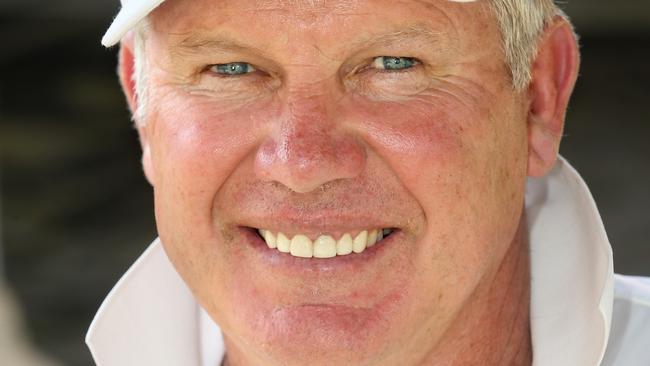‘I didn’t feel I was worthy enough’: Danny Frawley on life, death
One of final episodes of Danny Frawley’s radio show included discussion on why men aged 45-60 are most at risk of suicide.

One of the final episodes of Danny Frawley’s popular radio show about men’s health was a candid discussion about suicide and why men aged 45-60 are most at risk.
Men, in some ways, just like him. For 45 minutes the AFL legend turned media personality chatted to organisational psychologist Peter Zarris in a bid to “normalise” depression, anxiety and suicide, which claims about 3000 lives each year.
“Why is that?” Frawley asked.
“Life can lead you down road blocks, dead ends,” Zarris replied. “You can find yourself quite isolated, when you define success by external measures: what you’ve done, what you’ve got …”
“The flash car,” Frawley offered.
“You lose (your) sense of yourself,” Zarris continued. “You forget what’s important.”
His host enthusiastically agreed. “It was all what people thought of me, that’s what drove me,” Frawley said.
“I can remember going to functions and not having conversations with people — not sure if I was walking around like a peacock — but it was what people thought about me.
“End of the day, it was what I thought about me.”
Listeners to the program, No Man Should Ever Walk Alone, which aired on SEN Radio about 10 months ago, could have been listening in on a therapy session. The former St Kilda captain and Richmond coach, who had been open about his mental health battles, died on Monday in a single-vehicle accident west of Melbourne.
A coroner is investigating the 56-year-old’s death, which has sparked a public discussion about men’s mental health.
According to the Australian Bureau of Statistics, the highest proportion of suicide deaths occurs in the 45 to 49-year age group for both men and women, and the rate declines before spiking again from 85 years of age.
There are more than three times as many suicides by men than by women; in 2017, there were 2348 male suicide deaths and 780 female suicides.
Speaking to Zarris, Frawley revealed how he had tried to avoid dealing with his own issues. Excessive exercise. Using alcohol to mask the pain. Pretending to be the life of the party.
Until it all became too much and his wife, Anita — concerned that he was no longer the man she married — insisted he see a doctor.
“Dramatic changes in mood and behaviour, that was me. Isolation, I craved it,” Frawley said. “Guys would text me, say they’d come around, because they knew I was battling a bit. I’d text them ‘come around’ and I’d actually pull the shutters down on the blinds.
“For some reason I didn’t feel I was worthy enough.”
The two men spoke about how society had changed significantly since Frawley began playing football more than three decades ago and young men were expected to push through any mental anguish, just as many would do with an injury on the playing field.
Back then, admitting to struggling was a sign of weakness.
“The fact that it (suicide) is preventable is the most tragic thing,” Zarris said in the radio segment.
“I can’t emphasise enough, depression isn’t like having a permanent disability — you can move past it.”
Zarris said yesterday that Frawley’s death was a tragedy. “The irony is that what Danny was hoping to achieve with the program was to shine a light on the issue of mental health and he did that bravely, fearlessly, and I think it’s important that we recognise that.,” he said.
“It’s just so sad that it appears that it’s taken (his death) for it to happen.”
If you or someone you know needs help, contact LifeLine on 13 11 14



To join the conversation, please log in. Don't have an account? Register
Join the conversation, you are commenting as Logout